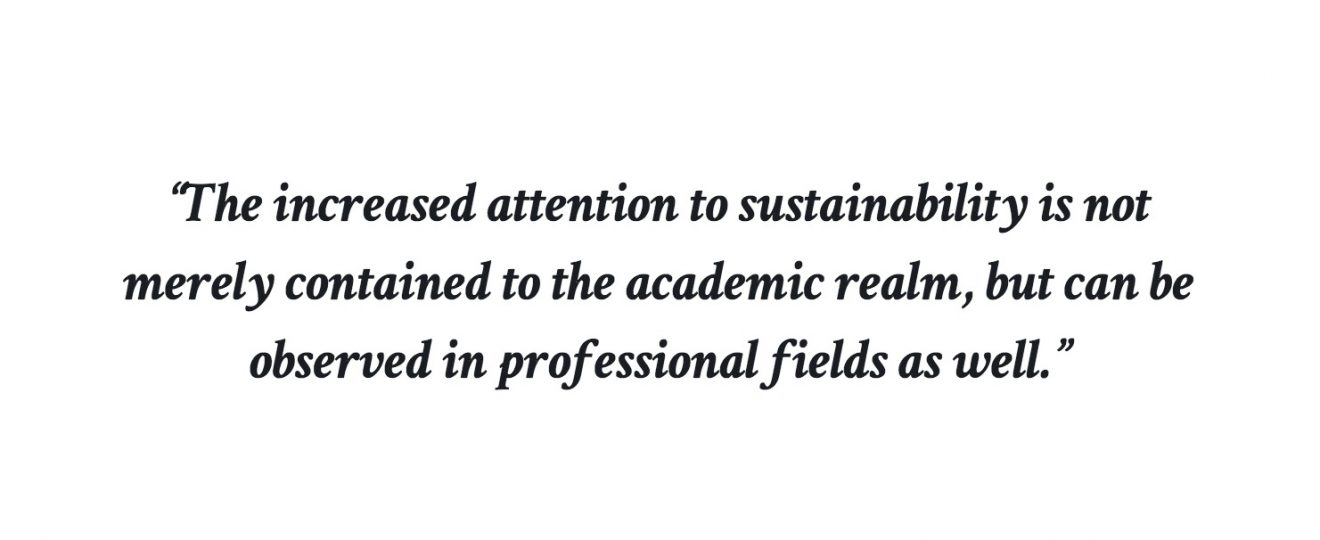In the realm of university admissions, degrees, and professional jobs, one mantra remains consistent: in the future, there will be new degrees and jobs which historically were not fathomable.
Although this idea may be disregarded as a cliché, the rise in one particular field- sustainability- supports the claim. In the past 15 years alone, the field has grown exponentially, as evidenced by the increase of university courses. For example, the sustainability office at University of California, Berkeley increased from offering 5 courses in 2006 to 60 courses in 2009. Universities tout sustainability programs which encompass ecological, economic, policy, and anthropological studies, and offer certificates in leadership and management within the field. The multidisciplinary field of sustainability attracts a diverse range of students who are passionate to save the planet whilst other students seek to utilize the field as primarily an avenue for financial gain. Irrespective of the intentions of individual students, the sharp increase in a field which was nearly nonexistent within academia a generation ago is revealing of the rising concern for the modern social consequences for the planet, whilst providing confidence for a conscious and intentional field focused on preserving the planet from these ramifications.
This trend is firstly observable at the university level- with emerging programs at highly regarded universities not only in the United States but internationally. Yet the increase in sustainability begs the question- which degrees are in turn declining? In the United States, degrees in arts and social science education and accounting- two fields which enjoyed consistent enrollment decades ago are now declining by 15-20 percent. Sustainability instead draws on many of the principles and practices underlying these two fields, and many more, to dynamically address pressing global concerns. Students whose interests are broad and interdisciplinary can find niches within sustainability, including law, business, and ecological research.
The increased attention to sustainability is not merely contained to the academic
Whilst decades ago sustainability was not a widespread area of study
Yet just as the field has begun to emerge, so too is there hope that new innovative solutions to pressing environmental problems will unfold.




